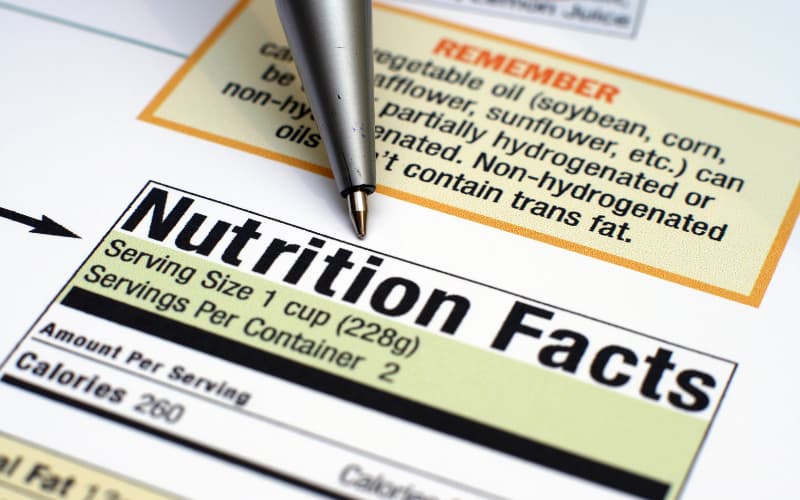
Categories
Fitness Training & Nutrition – A Match Made in the Gym
Deciding to start training, whether to lose weight, build muscle, become a bodybuilder, for a fitness competition, or build endurance, is a decision that requires a lot of commitment. One of the main reasons why people don’t reach their goals is because of injuries during training. However, nutrition is another aspect to keep in mind if you want to see the desired results within your estimated timeline.
Not getting the proper nutrients could derail your workout plans and cause more health issues than benefits. If you are on a training regime or want to start but don’t know what you need nutrition-wise, here is a guide to everything you need to know.
Pre-training Nutrition
Everything you eat before you start training significantly affects how you will perform, your endurance, and your recovery. Experts recommend that you eat the following three hours before you begin training.
Protein
Proteins are a crucial component if you want to increase your muscle mass. Eating it before exercising can also help reduce muscle damage markers like creatine kinase, myoglobin, and myofibrillar protein degradation.
Proteins also help increase amino acids in your bloodstream, which helps improve your muscle-building capabilities. You can get the required protein from a protein shake, protein bar, or protein-rich foods like salmon and eggs.
Carbohydrates
Carbs give your body the energy you need during a workout and boost recovery. These come in handy if you are working out for over two hours.
They also help preserve liver and muscle glycogen to help increase muscle growth and retention. Finally, they help stimulate insulin production to prevent protein breakdown and increase protein synthesis.
Fats
Fats are a great source of minerals and vitamins. They also help slow digestion and ensure you maintain a good insulin and glucose balance.
You can also incorporate these nutrients in the middle of workouts, especially if you are training for over two hours. They help prevent muscle breakdown and give you the energy to keep going. You can incorporate them in the form of gels, liquids, or some solid foods. The main thing you should focus on during a workout is hydration.
Post-training Nutrition
What you eat after training helps in recovery, rehydration, building muscles, refuelling, and improving future performance.
Proteins
Workouts trigger muscle protein breakdown depending on the exercises you do. Eating adequate proteins after working out provides the body with amino acids that help rebuild and repair the broken down muscle proteins and provides the building blocks necessary to build new muscle.
Experts recommend consuming between 0.14 and 0.23 grams of protein per every pound of body weight after training. In the past, people believed that it was best to consume fast-acting proteins like casein hydrolysate.
However, research shows that such proteins leave the bloodstream as fast as they get in. Therefore, they might not be the most effective in helping repair muscles. Also, the protein you consumed before the workout will probably still be in the bloodstream.
Therefore, eating a whole meal loaded with protein is better, but ensure you eat it within two hours after you finish training.
Carbs
Your body uses up a lot of glycogen as you work out. However, this depends on the workout you do. Endurance training, for example, uses up more glycogen than resistance training.
Experts recommend you consume between 0.5 and 0.7 grams of carbohydrates per pound of body weight within around 30 minutes after you finish exercising. Carbs also help boost insulin secretion, which helps with glycogen synthesis.
While people believe that consuming refined sugars and carbs helps spike insulin levels, eating whole food carbs, protein, plus some fruits is a better option. Experts recommend eating carbs and proteins in a three-to-one ratio.
It is healthier, helps restore more glycogen for the next 24 hours, and improves your next day’s performance.
Fats
Many people avoid fats after a workout because they fear they might inhibit nutrient absorption from other foods. While fats will slow down the digestion of the food you eat after a training session, it does not reduce nutrient absorption from the rest of the food.
One study comparing people who drank whole and skim milk showed they all had the same calories. While the people who drank skim milk had more protein content, those who drank whole milk had more net protein balance. They also found that whole milk was better at boosting muscle growth.
Nutrition For Rest And Easy Training Days
Easy training and recovery days are essential to ensure your muscles recover. Easy training days include at most 60 minutes of low-intensity training.
Since carbohydrates are mainly used to provide energy as you work out, experts recommend cutting them back during these days. This means you can have only one carb-based meal in the day.
That gives you the flexibility to eat a protein-based breakfast that helps reduce hunger for most of the morning. Increasing protein intake on these days from meals or snacks is essential to support your ongoing muscle tissue repair and growth.
You should also include other nutrients like polyunsaturated fats, for example, omega-3, to help promote recovery and reduce inflammation. It is also essential to have vegetables in your meals, especially those rich in antioxidants like carrots, broccoli, cabbage, and lettuce.
They help minimize free radical damage from other training days. They also help reduce muscle soreness. Rest days are also perfect for trying out new foods without worrying about your gut symptoms during training.
During easy training days, there is no need to eat carbs before training. Instead, let the body use fat to produce energy. This helps adapt your body and makes you more efficient at endurance training and is commonly known as low training. It is also a good weight management strategy as you will break down some stored fat.
Nutrition For Regular Training Days
Regular training days include a session over 60 minutes or one where you focus on intermittent/ high-intensity exercises. On these days, you should focus on having a moderate calorie intake by having a moderate carb and protein intake.
The best way to do this is to have a serving of carbs in two meals throughout the day and then have the other meal be rich in protein, vegetables, and some fats. This ensures that your glycogen stores can provide energy when training without using many of the body’s stored fats.
Moderate proteins ensure you continue repairing broken down muscles and creating new ones. For snacks, you can do protein bars or low-fat snacks like nuts, seeds, and Greek yogurt.
You can also practice low training on these days by eating more protein and lowering your fat intake. You should, however, not do this if you will be training for a long time because it will reduce your training quality.
Other nutrients you can include on regular training days include polyunsaturated fats to promote muscle cell functions. You should also have iron-rich foods to help carry more oxygen to your working muscles and promote energy production, especially during endurance training.
Nutrition For Heavy Training Days
These days include over two hours of training sessions, including high-intensity workouts. On these days, you need to focus on a high carbohydrate intake and ample hydration. Eating the right thing helps ensure you have the energy to complete your training and prevent muscle breakdown.
Ensure you have a carbohydrate serving in every meal. You can also incorporate carb-rich snacks throughout the day to ensure your energy levels remain the same.
For hydration, you can take sports drinks or water. They help replace the water you lose through sweat, and sports drinks contain electrolytes and carbohydrates you need to keep your energy levels high.
Many people might take caffeine-based pre-workout drinks to help with an energy boost. While they provide the energy surge, it only lasts a short time and might have worse effects on you in the long term.
It could affect your sleep, which affects your muscle recovery and growth in the long run because most of that happens when you sleep. It could also lead to addiction and withdrawal symptoms like headaches and dizziness that affect the workout performance.
You should also ensure you get a good protein serving at the end of the day. This helps repair your muscles and build new ones as your body rests at night. Adding antioxidant-rich vegetables and dietary nitrate also helps with muscle development and recovery.
It is essential to avoid foods that might result in gastrointestinal issues like fibre-rich, fatty, and spicy foods.
Tips to get the best training nutrition
Even with all this information, it can be hard to figure out the foods that work best for you or how the foods you eat affect your training regime. Here are some tips to ensure you remain ahead of your nutrition game for maximum benefits.
Have a food diary
This helps you identify the food you eat and how it affects your body and training results. At the end of every day, write the type and amount of food you ate, when and where you ate it, and how it made you feel.
This helps you identify how much protein, carbohydrates, fats, and liquids you take. It also makes it easier to identify the foods you need to increase or reduce to improve your results. You can also use free apps or online trackers to help identify your daily protein and carbs intake.
It would help if you also recorded your moods to identify whether emotions affect your eating habits and how to change them.
Calculate calories
You should eat a certain number of calories daily depending on what you want to achieve from your training. There are many online sites and apps that you can use to calculate your calories and compare whether you hit the required number depending on what you want to achieve.
Measure and weigh your food
When we hear diet plans, we always hear that we should eat certain portions or grams of specific foods for the best results. The best way to achieve this is by investing in a food scale and measuring cups. It also helps you identify what foods fill you up and which ones don’t, improving your dietary choices.
Limit your alcohol intake
Alcohol contains many calories that will disrupt the results of your training program. It also affects your sleep, resulting in low energy levels the following day and preventing you from conducting your entire training.
Your muscles also recover most when you are asleep, and that is inhibited when you take alcohol.
See a nutritionist
If you have tried several nutritional tips that don’t seem to work, consider seeing a nutritionist. They will advise you on the best foods to eat depending on whether you want to lose weight or gain muscle.
Some foods like lean protein, whole foods, and fibre keep you feeling fuller for longer. This makes them a suitable choice when you are trying to lose weight. Invest more in carbs and protein if you are trying to gain muscle.
To Finish
Whatever the reason for your fitness journey, nutrition is one element that heavily influences the success rates and your health during and after training. Including the right portions of nutrients at the right time ensures you lose weight, don’t repair and build muscle mass, and maintain overall health.
We help our members with a nutritional programme that works for them, if you’re struggling, give us a shout at our gym or try out our personal training and we’ll help you work out a plan that suits you.
Related Articles
- Women’s Fitness Training – Shifting the Focus
- Beginner Personal Training Workout
- What’s Important for Beginner Fitness?
- Nail the Nutritional Basics
- Meal Ideas for Training Days


